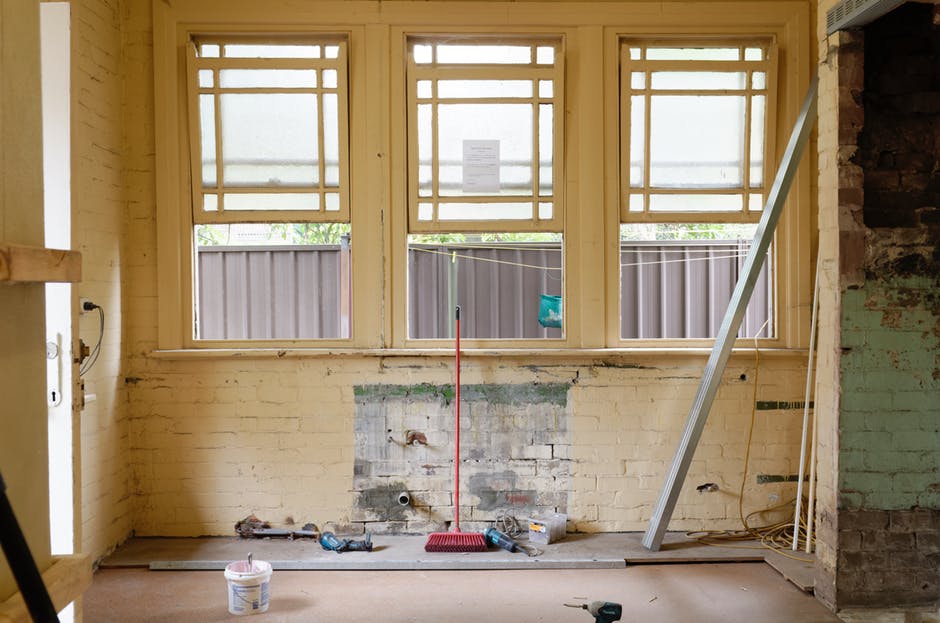|
Learn what questions to ask your prospective tenant’s references in order to find the best tenant for your rental that won't cause trouble down the line! Choosing to let someone live in your rental is always a risk. If they cause considerable property damage, then you’ll definitely fail to turn a profit. In order to avoid this, it’s important to know what questions to ask your prospective tenant’s references. Do they have any pets or bad habits? The very first of the questions to ask your prospective tenant’s references is whether they have any pets or bad habits. This is a question you can very easily slot into the conversation, whether you got a personal reference, a work reference, or a reference to one of their previous landlords. The latter, of course, will provide the most reliable information. This is especially important if you are renting to tenants with kids since they can be tempted to try to work around your ban on pets by hiding them from you. Are they violent or cause problems? This is another one of the questions to ask your prospective tenant’s references, irrespective of who they are. Friends and family will hesitate to say anything negative about them, but even their hesitation reveals a lot. Naturally, if their boss or previous landlord does reveal a tendency for problematic behavior, you should immediately give up on leasing out your rental to them! Even if they claim the person has changed since then, there’s a chance that they’ll revert to their previous behavior. And you do not want to risk your rental in this manner. What’s their social life like? While it may seem like an odd or innocuous question, this is very important. You need to know whether your tenant will feel compelled to organize parties or large social gatherings. While they are not an issue per se, frequent parties or too much alcohol can still lead to serious damage being inflicted on your property. And, if you are renting to roommates, it is doubly sure to check both of their references for this potential pitfall. When people room together, the scale of the social gatherings can grow and increase the potential for your rental to get damaged. Do they make their payments on time? This is a question you need to ask the landlords listed on your potential tenant’s references. Their rent payment history immediately reveals whether you will have problems with getting your payments regularly. Of course, some allowances should be made. Running late once or twice over a period of five or six years is more than okay. But, if they have a tendency to run late often, or ask for frequent extensions, then your own budgeting suffers. You won’t be able to rely on their payments, and that might not be something you want to deal with. What can you tell me about their personality? This is a question you want to ask the employer or landlord of your potential tenant more so than their friends or family. Family or friends tend to view problematic personality traits far more leniently than they should. A former landlord, however, can attest to the quality of their character more reliably. You do not want to rent out your property to someone confrontational. Or someone who makes an issue out of everything. Once a lease has been signed, you are more or less stuck with them, so make sure they have a personality you can stand for the duration of the lease. Did they take care of the rental properly? This is perhaps one of the most important questions to ask your prospective tenant’s references. Of course, the only ones who can attest to this are their past landlords. If they haven’t had a previous landlord, and you have their parents as one of the references, you should ask them about the condition of their room at home. The question may seem humorous, but if answered honestly, it can give you a lot of information. Failing that, you can always ask about their tidiness and cleanliness at work. This, too, can provide you with some insight into how they’ll treat your rental. Were there any unexpected issues? We have here another question aimed at former landlords. If they ask for clarification, you can ask if any repairs were suddenly needed due to damage inflicted by the tenant. Some damage can be accidental, such as stains or scratches. However, if they’ve broken an appliance or a piece of furniture, it can hint at something worse, even if it was carefully disguised as an accident. If they have a history of breaking things, you probably want to remove your better furniture and decorative pieces. As the experts from hansenbros.com love to point out, they can stay safe in storage for as long as needed. Did your other tenants have any complaints about them? One of the best ways to gauge whether a tenant will be problematic is to ask about the complaints of their neighbors. If their former landlord or neighbor can attest that there were no problems, you can rest assured. If there were a qualified property manager looking after the rentals, they’d also be able to provide a lot of pertinent information on this subject. However, you probably don’t want a combative tenant who might disrupt the lives of your other tenants on your property. Would you let them lease your rental again?
The final of the questions to ask your prospective tenant’s references, if they’re a landlord, of course, is whether they would let them live in their rental again. There is no better way to check whether you want to let them lease out your property. If the answer is no, then even if they’d offered nothing but praise for the tenant previously, you can be assured there was something they’d held back. Carefully selecting the right tenant for you By using the questions to ask your prospective tenant’s references well, you’ll be able to find the perfect tenant for your rental! What ‘perfect’ means is different from landlord to landlord, of course. So, make sure to throw in any additional questions you believe are important to you! Picture Links: Unsplash Unsplash Unsplash Unsplash If you're thinking about renovating your home, there are a few things you should know before you get started. From understanding the different types of renovations to budgeting for your project, this guide from Clark Real Estate will give you an overview of what to expect when it comes to renovating your home.
Different Types of Home Renovations There are many different types of home renovations, from small cosmetic updates to major structural overhauls. Some common home renovation projects include:
Establishing a Timeline and Schedule Once you've decided on the scope of your project, it's time to establish a timeline and schedule. This will help you stay on track and ensure that your project is completed on time and within budget.Some factors to consider when creating your timeline and schedule include:
Budgeting for Your Renovation Next, you'll need to create a budget for your renovation. This will help you keep track of all the costs associated with your project and ensure that you don't go over budget. When budgeting for your renovation, be sure to factor in the cost of the following:
Software Used by Contractors These Days Contractors today use a variety of software applications to manage their projects, including project management software, accounting software, and CAD (computer-aided design) software. Certain specializations also have their own specialized software. All in all, by understanding which software applications your contractor is using, you can better communicate with them and stay up-to-date on the progress of your renovation. How to Find Capable, Trustworthy Contractors Once you've established a budget and timeline for your project, it's time to find capable, trustworthy contractors who can get the job done right. Here are some tips for finding reputable contractors:
Clearly Communicating Your Ideas One of the most important aspects of any home renovation is clear communication between you and your contractor. After all, they're the ones who will be responsible for bringing your vision to life! Make sure you take the time to sit down with them and clearly explain what it is you're looking for before work gets underway. Putting your ideas in writing is advisable, as well. If you like, you can start in Word, then save the files as PDFs so that they can be easily accessed on different devices. If you want to join various PDFs together, you can do so in seconds by selecting a PDF merger tool that you can use for free. Getting Permits Depending on the type and scope of your renovation, you may need to obtain certain building permits before work can begin. Your contractor should be able to advise you on which permits are required for your project. Adding a Home Office With more and more people working from home these days, it's no surprise that many homeowners are looking to add a dedicated home office space as part of their renovation plans. If this is something you're considering for your own home, be sure to factor in the cost of additional electrical outlets, internet hookups, and any other special features that may be required. The Benefits of a Home Warranty Finally, one last thing to consider when renovating your home is whether or not to purchase a home warranty. This type of insurance protects against unexpected repairs or replacements that may be needed after the completion of your renovation project. While not required, a home warranty can give you peace of mind knowing that your investment is protected. Now that you know more about what to expect when renovating your home, it's time to start planning YOUR dream renovation! Just remember: careful planning, clear communication, and staying within budget are key to ensuring that your project goes off without a hitch! Clark Real Estate offers a variety of property management services for landlords and tenants alike. If you have any questions, please let us know. Image via Pexels Flipping houses can be a great way for aspiring students to earn money for college. With a little hard work and a bit of luck, one can turn a profit from buying an inexpensive fixer-upper and selling it at market value. Investing in the real estate market requires careful research and savvy knowledge of the industry, but with dedication and persistence, flipping houses can become a lucrative investment that pays off in more ways than one.
Find the Right Home to Flip One of the most important steps in real estate investing is finding the right home to flip. It can be hard to determine which properties are worth your time and money. However, there are several factors you should consider when evaluating potential flips. You should look at a property’s location, condition, zoning, and comparable prices. Also, consider housing trends and research what similar properties have recently gone for on the market. With a little diligence, you'll be able to find the perfect property flip. Check the Zoning When looking for a house to buy and potentially flip for a profit, it is important to research local zoning laws. Every county or municipality may have different regulations which could prevent or limit renovations, additions, or other changes that could affect the value of the property. By checking with the local zoning laws first, potential home flippers can save themselves the heartache of a bad deal. Call the Pros Even if you have experience in home improvements, it's still wise to hire professional contractors for major projects such as plumbing, electrical work, structural changes, and more. Skilled professionals will get the job done correctly and safely while ensuring that your renovation project complies with all applicable laws and regulations. Make It Sparkle When you're ready to put up your property for sale or rent, don't forget about deep cleaning. A good vacuuming and decluttering will already go a long way. This is an often overlooked step, but it can make all the difference when it comes time for potential buyers or renters to tour your home since they'll appreciate seeing how well-maintained everything is from day one. Plus, deep cleaning before listing will give you an edge over competing listings on similar properties nearby. Market Your Property When it comes to flipping a house, successful marketing can be the difference between making a profit and taking a loss. Utilize all available channels to get the word out about the property, such as listing it on online real estate sites, reaching out to local Realtors for referrals, and utilizing social media platforms like Facebook and Instagram. Host an open house or organizing events at the property to generate interest. Invest in professional photography, staging, and open-house support to increase visibility. Additionally, make business cards, which can help spread the word about your listing quickly and easily. Make sure your cards include information about what makes your property unique, such as its location or amenities included in the sale/lease agreement. Alternatively, reach out to Clark Real Estate. We can manage your property for you in the Reno and Sparks areas. Study Online to Save on Costs If flipping houses isn't enough money for school tuition, you can always take classes online. Whether you want to earn your bachelor of education or your master's in accounting, virtual learning has become popular in recent years due to its convenience and flexibility when compared to attending full-time in-person classes. Moreover, online degree programs can cost significantly less, which means your tuition budget goes further. Flipping houses to help pay for college can be a lucrative undertaking. With careful research and planning, it can be an incredibly rewarding venture both financially and emotionally. Whether you're looking to pay off student loans or save up money for tuition costs at college, flipping houses can be a great way for adults to return to school after years away from the academic world. Image via Pexels Buying an investment property in Nevada is a financially wise decision. And not only because it's a valuable asset that can provide you with a significant passive income. On top of that, it can be a stress-free occupation. You can run a rental business any way that suits you. However, to ensure everything goes smoothly, it's better to choose the location carefully. Both local and long-distance landlords face different challenges and enjoy different benefits. Before you decide, it's best to consider both options. With that in mind, we've decided to examine both possibilities and help you make the right choice. So, local vs. long-distance investing: which is better for Nevada landlords? How to make the right decision? Firstly, before you start searching for the right property, you need to ask yourself a few questions. Knowing the answers will help you make up your mind and make a sound decision. So, ask yourself the following questions:
So, what are your financial goals? Do you want to get out of debt, gain independence, or accumulate wealth? To answer this question, you need to first assess your current finances. Then visualize where you want to be in the next five, ten, or twenty years. Knowing this will help you focus your investing in the right direction. Choose the right market Next, you need to decide on the right market. For example, you might want to have a high rent-to-value ratio. In that case, you should choose a cash-flow market that will provide you with valuable income. Or, if generating the cash flow isn't your priority, you might want to choose a market with a potential for long-term appreciation. Lastly, hybrid markets offer a mix of both options. Of course, what you decide on depends on your long-term goals. Self-management or using property management? To determine your real estate strategy, you need to answer this question. Maintaining the property and dealing with tenants can be pretty overwhelming at times. From the potential renovation of the property to tenants losing their keys for the n-th time, self-managing demands a lot of effort and work. However, some landowners prefer to be in charge and gladly take on these responsibilities. If that is the case with you, there is no dilemma. In local vs. long-distance, local investment property is a clear winner. On the other hand, if you'd rather hire a third party to manage your property, both options may work for you. In that case, the key is to find an experienced property management company you can rely on. Whether you choose a local or long-distance property, you'll be able to save both time and effort while they manage your rental business for you. Local investment property Now, let's have a closer look at what you can expect from buying a local investment property. Familiarity with the market The first and most obvious advantage is that you're more likely to be familiar with the market when you're investing locally. Every local market is unique, and knowing little flows and trends can help you invest in the right property. You'll know all the local attractions and amenities that are likely to attract tenants. However, doing proper research is still a must. You'll have more control This is crucial for many landlords in the local vs. long-distance dilemma. While it's not impossible to manage your property long-distance by yourself, it's certainly more demanding. On the other hand, you can choose a more hands-on approach as a local landlord. For example, you can meet with your tenants when necessary, show your property in person, and perform an inspection of the property. You can hire local contractors when necessary When you delve into investing in real estate, you're bound to need contractors at some point. Whether you want to remodel that fixer-upper or need some repairs, finding the right contractors locally is much more manageable. Firstly, you can choose them yourself and ensure they're suitable for the task. Secondly, they're less likely to try and take advantage of your absence. Long-distance investment property
However, long-distance investments also come with their own set of advantages and drawbacks. Let's have a proper look. A wider range of investment opportunities Depending on where you live, your local market might not be able to offer you what you want. What if you need cash flow but live in an appreciation market? On the other hand, if you don't limit yourself, you can opt for a more profitable market with a higher return on investment. If you find the right property in other parts of Nevada, you might even want to relocate there! If the business proves very lucrative, this might be an excellent idea. However, if you want to live nearby, ensure you plan your long-distance relocation with care. From packing your belongings to hiring trustworthy movers - many tasks will require your attention! Use a property management company Of course, you can do this on a local level, too. However, limiting yourself may lead to losing some excellent opportunities. And if you plan to hire property managers in either case, a long-distance investment can be a better choice. There are many reasons to hire property managers! Although it may seem a more expensive option at first, it can save you money in the long run. Especially if you don't have a lot of experience - they'll ensure your tenants are satisfied and your property in good condition. You can use your property for a variety of purposes While your goal is mainly to rent your property to tenants, you can also use it as a vacation home in between. Or, your kids can use it when they start college - no accommodation worries! And lastly, you might choose to relocate or retire there someday. The bottom line As you may see, there are many things landlords should consider when it comes to local vs. long-distance investing. Both options come with their unique advantages and issues. However, once you know your long-term goals and preferences, you'll be able to make the right choice. Meta description: Buying the right investment property is not an easy task. Find out which is better for landlords - local vs. long-distance investing! What goes up must come down. That adage is true when it comes to throwing a ball or hot air balloons, but what about rising prices? History tells a different story. You don't need to be an economist to know that prices for most products are more on a continuum trending upward with only slight and temporary dips. Inflation is a result of supply and demand. When there is greater demand than supply prices will increase. When there is a oversupply of products, the cost typically goes down albeit not necessarily lower than a previous average. Anyone that has filled their vehicle with gas over any period of time knows that gas prices fluctuate with the seasonal ups and downs directly related to usage by consumers and how much is available in the world. Inflation not only affects the price of gas and groceries, but also housing prices. The price of building a new home is related to the supply of construction materials. When the cost of building a new home is prohibitive, there is more demand for existing houses. Which, in turn drives up the sales price of an existing home. Other factors can contribute to home prices such as interest rates or the availability or affordability of low cost financing. Again, supply and demand is what pushes inflation to the record levels we've recently seen. Here is what many in government see as a benefit to inflation: The cost of paying back debt is actually lower when the debt was incurred prior to inflationary increases. If inflation devalues our money by say 10% it means that the debt represents a lower percentage of the income needed to repay it. If inflation pushes prices to 50 or even 100 percent, the pre-inflation debt seems insignificant. That is possibly one reason that many in congress don't seem to be concerned about inflation. One key to surviving inflation is to hold on to assets that rise in value with inflation. Cash is not a good hedge against inflation because it continually takes more of it to buy goods and services. Real Estate, precious metals, and durable goods that remain in demand in any economy historically provide protection better than most liquid assets. While high inflation rates may subside when demand and supply are corrected, prices typically level off but do not decline. That makes investing in real estate, for example, fairly safe. Landlords rarely lower the rents when inflation cools off. A shift to new construction could occur if materials become more readily available, but the existing homes hold their own. Understanding inflation can help you make better choices about what to invest in and how you can benefit from what can be negative affects.
 When tenants are asked why they don't just buy a home, the answers often include, "my credit is bad." Improving your credit is not as hard as most people believe but it does take some action. Credit is established by a payment history. It is important to know what kind of payments are used to create a credit score. Some payments are not reported to the credit bureaus, but can be used as "non-traditional" forms of credit. These payments include cell phone, utilities and rent payments. If you have no credit score, these "non-traditional" payments can be used to prove your credit worthiness and are acceptable for certain home loan products. Keeping good records of these payments are important and can be the proof you need to qualify for financing. In the case of having poor credit due to slow payments on past loans such as a car payment or bills that were turned in for collection or repossession, that can still be overcome. The first step comes from learning what shows up on your credit report by having a bank pull a report and is willing to show you the results. If there are outstanding balances or collections, they must be addressed. It is possible that the creditors are willing to negotiate a payoff that is less than the actual amount you owe. Using a tax refund, for example, to pay off old debt would be a smart way to use those "extra dollars." A phone call to the creditor requesting a discount, in most cases, will result in a payoff that may be affordable and will be a step in improving your credit score. In any case, clearing any bad history is critical before any "good credit" can be obtained. If credit report shows only limited use of credit and the score is low, there is another way to correct this problem. Of course, the answer is to obtain recent payment history to show you now have the ability and willingness to make timely payments. One way to make this happen is to go to a bank or credit union and tell them what you are trying to do. Request a small loan of $1,000 or whatever the lender's minimum loan is. Use the loan proceeds to open a savings account or Certificate of Deposit to be held by the bank as security for the loan. The bank is 100% guaranteed that the loan will be repaid since they are holding the money to apply to the loan if you don't make the payments. Once the loan is in place, be sure to make timely payments until the loan is paid in full. The bank will then release the hold on the funds in your savings account. You will have accomplished two things: you improved your credit score, and you have money in the bank! Plus, the bank is now more willing to consider you as a risk for future loans. Building credit, or repairing credit is not an overnight thing, but is vital to making the leap from paying off someone else's mortgage to paying off your own.  A lot of challenges come with owning and renting properties. From remembering to bill your renters to staying on top of maintenance needs for every property, there is no shortage of things to do. If you own many properties that you rent out or even just one property, there are a lot of headaches and challenges you can face along the way. One thing you must do as a landlord is make sure the property stays in shape. Amanda Hinson, who rents out a property of her own, says that she must “call on tree trimmers, painters, construction workers, the plumber, and electrician for help with maintenance. If there's something I can manage myself, I will do the work such as cleaning gutters.” However, when you don’t live near your rented property, it is not easy to find the best options to keep up the maintenance, let alone to do the work yourself. You also can’t check if your renters are following the rules, such as not having more people than agreed upon, or taking on another pet. So how can you live with peace of mind while managing your property? By using a property management service! Reno Property Management Service with Clark Real Estate is a great solution for owners in the Reno/Sparks area. A family business run by Charles and Rick Clark, they will help you rent out your Reno or Sparks property without the usual stress and challenges. When asked why someone should use a property management service, Amanda Hinson said that it was “convenient, low stress, it provides me peace of mind and freedom to manage my personal house more. I can give time to what's really important.” Give time to what is important to you, such as your own home and family, while the professionals help you advertise, collect payments, do maintenance, find good renters, deal with emergencies, and more! And on the flip side, renters can find property more easily with the Clark Real Estate website. They can find what they are looking for among Clark Real Estate’s options, while you still get money as the property owner. As Real Estate’s brokers find the best tenants for your properties and find the best properties for tenants using their unique qualification process, start relaxing and doing what feels most important again.  Whether they’re itching for something to do during colder months, motivated by the occasional Saturday when warmer weather prevails, or inspired by a marathon of a favorite DIY show, there always seems to be at least one improvement project on every homeowner’s to-do list. DIY Doubts If you count yourself among that cadre, it might be tempting to cut costs by tackling every task yourself. But, unless you are a veteran do-it-yourself homeowner who’s had a lot of experience with complex and costly renovations, there are probably some projects that should be left to the pros. For instance, most renovations experts say sanding floors requires a special touch that takes lots of practice to develop. So, even if you are able to rent the necessary equipment at a reasonable price, inexperience may lead to ugly mistakes that can be costly to fix. And, while it might be possible for a handy homeowner to complete simple electrical projects, like installing a dimmer switch or replacing a light fixture, the risk of shock and fire outweighs any cost savings for more complicated wiring projects, according to experts quoted in Architectural Digest. Likewise, they recommend that installing bulky or heavy items, like granite countertops, should be left to those who have the tools and techniques to do so without hurting themselves or the materials they are working with. Easy Upgrades Still, there are plenty of projects that even novice DIY homeowners can handle with a minimal investment of time and money. For instance, you could install new cabinet hardware and faucets in the kitchen and bath to give the rooms an almost instant cosmetic upgrade. A fresh coat of paint on walls, cabinets, or even a single wall offers much the same effect. And, while you’re at it, consider replacing dingy switch plates and outlet covers to create a clean look throughout your home. Projects to improve energy efficiency also offer an excellent return on investment, with many resulting in savings right away. For instance, adding weatherstripping around doors and windows and installing a programmable thermostat can help you control heating and cooling costs. Replacing conventional light bulbs with environmentally-friendly LED bulbs can cut energy usage and save you time and trouble over the long haul, because they don’t need to be replaced as often. Plus, your local utility company might offer rebates and discounts to help you cover the costs of some of these items. Staying Safe Even easy do-it-yourself tasks can present some risks and challenges. After all, you may need to mount a ladder to repaint a room or replace a light bulb. And, while a power drill can come in handy for everyday projects like installing a towel rack or hanging pictures on a wall, it can also create homeowner hazards. Before you begin any project, experts recommend that you keep these safety tips in mind: ●Wear the right clothes. Avoid wearing jewelry, loose clothing, or shirts with loose or long sleeves that could get caught in equipment. Be sure to wear goggles when you might be exposed to airborne debris, and use earplugs when operating noisy equipment. ●Prep your workspace. For safety’s sake, you need to have a clear work area. Make sure you remove all clutter from the floor and any other spaces you’ll be working in, such as the front or back yard. If you’re doing a major project that spans multiple rooms for longer than a week, you’d be wise to move any belongings that will be in the way to an inexpensive storage unit until the work is complete. ●Practice precautions when using power tools. For instance, you should never leave a power tool unattended while it is on. In fact, before you leave your work area, unplug any tools and make sure they are out of children’s reach. Follow the owner’s manuals and any warnings when using, caring for, and storing power tools to ensure they’ll work safely for years to come. ●Keep an eye on your surroundings. Be conscious of sharp objects, power tools, and other equipment in your workspace. Remain aware of other adults who enter your area, and keep children and pets out of the vicinity while you work. ●Mind your ladder. Read and follow instruction labels before using the ladder, and make sure you’re using the right ladder for the job. For instance, it’s important to select a ladder that’s tall enough for you to comfortably access the project area and that can bear the weight of you and your equipment, according to its stated weight limits. Finally, be sure to place the bottom one foot from the surface it’s leaning against for every four feet in ladder height. ●Have easy access to a first-aid kit, and make sure it is well stocked. You won’t want to treat serious injuries yourself, but scrapes, scratches, bumps, and bruises are common even during successful renovation projects. ●Mind your ladder. Read and follow instruction labels before using the ladder, and make sure you’re using the right ladder for the job. For instance, it’s important to select a ladder that’s tall enough for you to comfortably access the project area and that can bear the weight of you and your equipment, according to its stated weight limits. Finally, be sure to place the bottom one foot from the surface it’s leaning against for every four feet in ladder height. Following these suggestions about tasks you should leave to professionals, manageable DIY projects, and safety precautions will hopefully help keep both you and your home in good working order for a long time to come.  While most folks are enjoying an increase in take home pay as a result of the TCJA (Tax Cuts and Jobs Act), understanding how the Act affects mortgage interest deductions is important. The legislation includes an increase of the standard deduction, which eliminates the need to claim the mortgage interest deduction at all for many tax payers. However, if your deductions exceed the standard amount ($12,000 for individuals and $24,000 for married couples filing jointly), you should be knowledgeable on what is allowable under the new rule. Here is a summary: 1. If your home loan was originated prior to January 1, 2018, and the loan was taken out to acquire, construct or substantially improve the home, the interest is still deductible. 2. Interest paid on Home Equity Loans are no longer deductible regardless of the origination date. 3. Interest on a mortgage taken out to refinance a previous loan will not be deductible. 4. The maximum mortgage amount allowed to deduct interest is $750,000. 5. If more than one house is owned and financed (for example; a lake home, ski home, country cabin, etc) only two can be used as mortgage interest deductions. So, if you have a primary residence with a mortgage and a second home with a mortgage and a third home with a mortgage, you can only count two of the properties as eligible for interest deduction. The properties selected can change from year to year which allows a home owner to choose the home loan with the highest interest rate to deduct. While this is not a comprehensive list of the changes, it should help in making a decision on whether to refinance or to purchase. There are different methods available for calculating the allowable deduction and it is advisable to consult a tax professional for specific advice regarding this issue.  Mortgage interest rates are on the rise. After enjoying a long break from higher rates, home buyers and homeowners are realizing the impact of even small changes in interest rates. True, rates are far from what could be considered high. (As a comparison, consider mortgage rates in 1982-83 being over 16%.) Currently, every $1,000 of financing a 30 year mortgage costs only about $5 per month. Here's what that means: If your budget allows for a monthly mortgage payment of $1,000 (not counting escrows for property taxes or insurance, PMI or HOA dues) that equates to a $200,000 loan. If interest rates continue to rise as experts predict, even a 1% increase in rates reduces that $1,000 monthly payment to about $178,000 in financing. That's a difference of about 11% less buying power! That could mean the difference between the home of your dreams and one you will settle for. History shows that housing market activity actually goes up when rates increase. The reason? Buyers realize they may miss out on getting the house they want with the payment they can afford. That results in a higher number of buyers looking at the same time. This drives up prices as more homes are sold with multiple offers. There are some steps borrowers can take to improve their situation in a rising interest rate market: 1. Get pre-approved by a lender with competitive rates and a reputation of being able to move a loan from purchase to closing in a timely manner. 2. Pull together all the information your lender will need before you get together with them. This will include:
4. Be prepared to address any negative items that may be on your credit history. Having these items in advance will speed up the approval process significantly and give you an advantage in being able to move quickly when the right house becomes available. Finally, discuss "locking" the interest rate with your lender. In a rising rate market, it is critical to understand the lender's policy to lock in a rate to protect you from changes that could occur prior to the closing of your loan. Typically interest rates cannot be locked until you have a purchase agreement signed by all parties and you have confidence in the closing date as well as having resolved any contingencies such as house inspections. While rates are rising, it's still an excellent time to invest in real estate. Taking advantage of today's rates will make you look like a genius in the future and you will have locked in a stable payment for a long time to come. |
Clark Real Estate
305 W. Moana Ste C Reno, NV 89509 (775) 828-3355 Reno Property Management
All
|













 RSS Feed
RSS Feed

